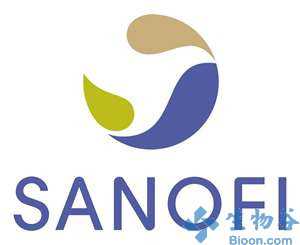CHMP建议批准赛诺菲单抗药物Lemtrada用于活动性复发缓解型多发性硬化症(RRMS)治疗
2013-07-03 tomato 生物谷
赛诺菲(Sanofi)旗下健赞(Genzyme)上周五宣布,单抗药物Lemtrada(alemtuzumab)获得了欧洲药品管理局(EMA)人用医药产品委员会(CHMP)积极意见。CHMP建议批准Lemtrada用于活动性复发缓解型多发性硬化症(RRMS)成人患者的治疗。预计欧盟委员会(EC)将在未来几个月内做出最终审查决定。Lemtrada是一种单克隆抗体,靶向于CD52,这是一种位于T细胞及B
赛诺菲(Sanofi)旗下健赞(Genzyme)上周五宣布,单抗药物Lemtrada(alemtuzumab)获得了欧洲药品管理局(EMA)人用医药产品委员会(CHMP)积极意见。CHMP建议批准Lemtrada用于活动性复发缓解型多发性硬化症(RRMS)成人患者的治疗。预计欧盟委员会(EC)将在未来几个月内做出最终审查决定。
Lemtrada是一种单克隆抗体,靶向于CD52,这是一种位于T细胞及B细胞上的蛋白。健赞认为,该药能够减少MS疾病的活动,通过抗炎作用,有助于再次平衡(rebalance)免疫系统。
Lemtrada(alemtuzumab,阿仑单抗)商品名为Campath,已获批用于治疗白血病。(生物谷Bioon.com)
英文原文:Genzyme Receives Positive CHMP Opinion for LEMTRADA™ (alemtuzumab) in Europe
– CHMP also Recommends NAS Designation for AUBAGIO® (teriflunomide) Following Positive Opinion on Approval in March 2013 –
– Positive Opinions Set Stage for Introduction of Two New Genzyme Therapies for Multiple Sclerosis in Europe –
Friday, June 28, 2013 8:00 am EDT CAMBRIDGE, Mass.--(BUSINESS WIRE)--Genzyme, a Sanofi company (EURONEXT: SAN and NYSE: SNY), announced today that the Committee for Medicinal Products for Human Use (CHMP) of the European Medicines Agency (EMA) has issued a positive opinion for approval of LEMTRADA™ (alemtuzumab) for the treatment of adult patients with relapsing remitting multiple sclerosis (RRMS) with active disease defined by clinical or imaging features.
In addition, the CHMP issued a positive opinion on new active substance designation (NAS) for AUBAGIO® (teriflunomide). Earlier this year, the CHMP issued a positive opinion recommending the approval of AUBAGIO for the treatment of adult patients with relapsing remitting MS.
The European Commission (EC) is expected to render a final decision to grant marketing authorizations for LEMTRADA and AUBAGIO in the EU in the coming months.
“Today’s CHMP opinions set the stage for the approval of two important new treatment options for MS patients. Treatments to-date have addressed some of the unmet needs in MS, but still have limitations,” said David Meeker, MD, Genzyme President and CEO. “Upon approval, physicians will have the ability to prescribe LEMTRADA for appropriate relapsing remitting patients based on their impressions of clinical or imaging characteristics regardless of duration of disease or treatment history. Expectations among the MS community are high for LEMTRADA and with today’s positive CHMP opinion we are a step closer to making this very innovative treatment available for MS patients in Europe.”
The positive CHMP opinion for approval of LEMTRADA was based on data from the CARE-MS I and CARE-MS II trials, in which LEMTRADA was significantly more effective than Rebif® (subcutaneous interferon beta-1a 44 mcg three times weekly) at reducing relapse rates. In CARE-MS II, accumulation of disability was significantly slowed in patients given LEMTRADA vs. Rebif, and importantly, patients treated with LEMTRADA were significantly more likely to experience improvement in pre-existing disability.
“Today’s announcement from Genzyme represents a key milestone in the extensive program evaluating LEMTRADA in multiple sclerosis,” said Professor Alastair Compston, Head of the Department of Clinical Neurosciences at the University of Cambridge, United Kingdom. “The superior efficacy of Lemtrada vs. Rebif in the clinical trials, which was sustained despite infrequent administration, represents an approach to treatment that promises to reshape the future for many people with active relapsing-remitting multiple sclerosis.”
LEMTRADA has a novel dosing and administration schedule of two annual treatment courses. The first treatment course of LEMTRADA is administered via intravenous infusion on five consecutive days, and the second course is administered on three consecutive days, 12 months later.
The LEMTRADA clinical development program included two randomized Phase III studies comparing treatment with LEMTRADA to Rebif in patients with relapsing-remitting MS who had active disease and were either new to treatment (CARE-MS I) or who had relapsed while on prior therapy (CARE-MS II), as well as an ongoing extension study. A large randomized Phase II study provided the foundation for the Phase III program.
Safety results were consistent across both the CARE-MS I and CARE-MS II studies. The most common adverse events associated with LEMTRADA were infusion-associated reactions, including headache, rash, fever, nausea and hives. Infections were common in both the LEMTRADA and Rebif groups. Infections more common on LEMTRADA treatment included upper respiratory and urinary tract infections, herpes viral infections, and influenza. Most infusion-associated reactions and infections were mild to moderate in severity and responded to standard treatments.
{nextpage}In both CARE-MS I and CARE-MS II, the incidence of serious adverse events was similar between the two treatment arms. As previously reported, autoimmune disorders were more frequent in patients treated with LEMTRADA, primarily autoimmune thyroid disease which was observed in an estimated 36% of patients during extended follow-up. Immune thrombocytopenia (ITP) developed in 1.4 percent of LEMTRADA-treated patients through extended follow-up and 0.3% developed glomerulonephritis. Autoimmune disorders were detected soon after onset through a monitoring program, and were generally managed using standard treatments.
A comprehensive risk management program has been proposed to support early detection and management of adverse events.
In the U.S. the FDA has accepted for review the company’s supplemental Biologics License Application (sBLA) file seeking approval of LEMTRADA (alemtuzumab) for the treatment of relapsing multiple sclerosis (RMS). FDA recently extended the review cycle for LEMTRADATM by three months; no additional clinical studies have been requested, therefore FDA action on the application is expected in late 2013.
About LEMTRADA™ (alemtuzumab)
Alemtuzumab is a monoclonal antibody that selectively targets CD52, a protein abundant on T and B cells. Treatment with alemtuzumab results in the depletion of circulating T and B cells thought to be responsible for the damaging inflammatory process in MS. Alemtuzumab has minimal impact on other immune cells. The acute anti-inflammatory effect of alemtuzumab is immediately followed by the onset of a distinctive pattern of T and B cell repopulation that continues over time, rebalancing the immune system in a way that potentially reduces MS disease activity.
Genzyme holds the worldwide rights to alemtuzumab and has primary responsibility for its development and commercialization in multiple sclerosis. Bayer HealthCare retains an option to co-promote alemtuzumab in multiple sclerosis. Bayer HealthCare has notified Genzyme of its intention to co-promote under this option. Upon regulatory approval and commercialization, Bayer would receive contingent payments based on sales revenue.
LEMTRADA is the proprietary name submitted to health authorities for the company’s investigational multiple sclerosis agent alemtuzumab.
(责任编辑:lili.zhao)
本网站所有内容来源注明为“梅斯医学”或“MedSci原创”的文字、图片和音视频资料,版权均属于梅斯医学所有。非经授权,任何媒体、网站或个人不得转载,授权转载时须注明来源为“梅斯医学”。其它来源的文章系转载文章,或“梅斯号”自媒体发布的文章,仅系出于传递更多信息之目的,本站仅负责审核内容合规,其内容不代表本站立场,本站不负责内容的准确性和版权。如果存在侵权、或不希望被转载的媒体或个人可与我们联系,我们将立即进行删除处理。
在此留言











#活动性#
71
#多发性#
54
#RRMS#
51
#TRA#
66
#单抗药#
58
#硬化症#
59
#Lemtrada#
58
#ADA#
63
#CHMP#
59
#EMT#
70